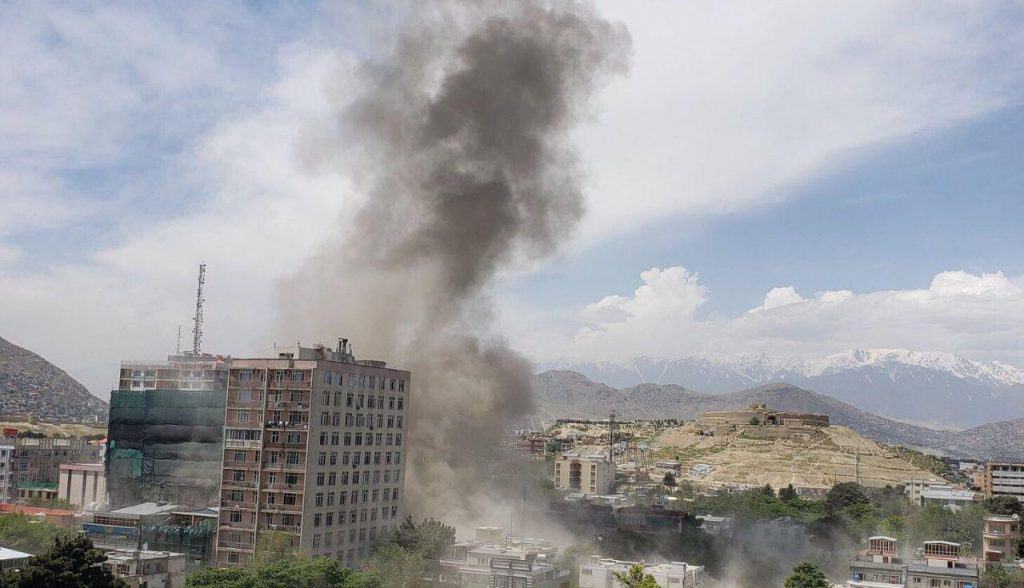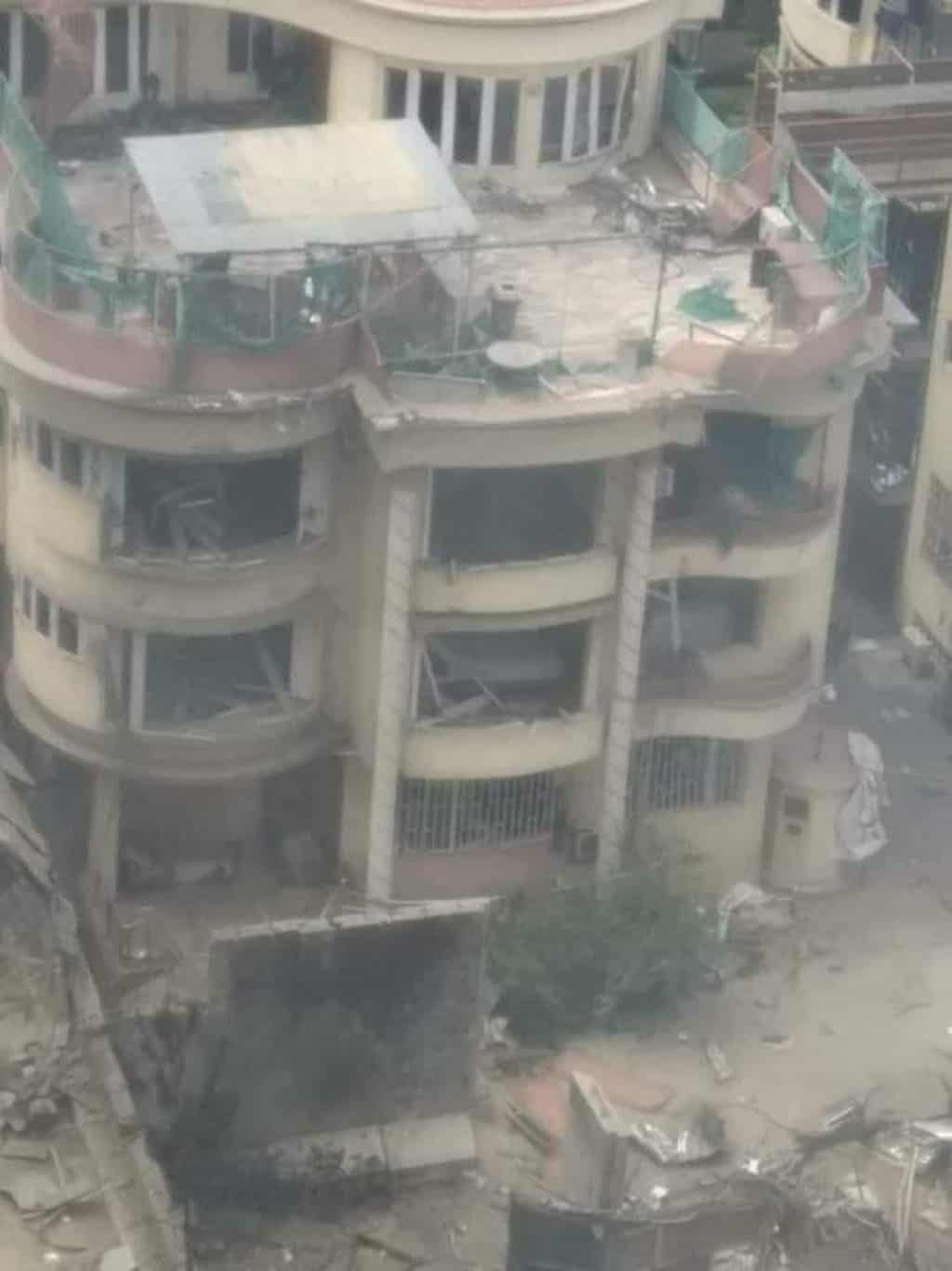
A Taliban suicide assault team stormed the offices of Counterpart International in Kabul earlier today. Counterpart is a non-governmental organization (NGO) backed by United States Agency for International Development (USAID) and others. The NGO’s work is intended to bolster civil society organizations within Afghanistan, and its alumni “serve on regional high peace councils and have also gone on to coordinate local peacebuilding efforts.”
However, the Taliban sees Counterpart’s work as a threat to its own extremist project.
The jihadist group quickly claimed responsibility for the terrorist attack, which reportedly began with an explosion and lasted several hours.
The Taliban, which consistently refers to itself as the Islamic Emirate of Afghanistan, accuses Counterpart of promoting “western culture” and the “mixing” of men and women.
On Twitter, Taliban spokesman Zabihullah Mujahid attempted to justify the assault. The author(s) of Mujahid’s account accuse Counterpart of “mentoring Kabul admin workers in various aspects of brutality, oppression, terror, anti-Islamic ideology & promotion of western culture.”
In another tweet, Mujahid wrote: “Counterpart implemented a dangerous program termed ‘Angel’ aimed at promoting open inter-mixing b/w men & women.”
An article on Counterpart’s website decries the appeal of “violent extremism” inside Afghanistan, with the “Taliban and ISIS being [the] most prolific” actors. The piece at Counterpart’s website explains how both jihadist organizations recruit minors and other young Afghans to their causes.*
The details concerning the raid are still coming out. It appears to have begun with an explosion outside of the building Counterpart’s employees. A team of jihadists then rushed in, laying siege to one or two buildings. Afghan security forces quickly swooped in, reportedly ending the crisis after nearly six hours. The Taliban disputed earlier claims that the attack was thwarted within a few hours.
On his Twitter account, Mujahid claims that “car bomb parked near Counterpart network” was “detonated” following the “initial attack,” killing a “large number of hireling gunmen” — meaning members of the Afghan military or security forces. However, the precise casualty count remains to be confirmed.
The Taliban has also shared two photos from the raid. The first image (seen at the top of this article) shows smoke billowing in the distance. The second (seen below) allegedly shows a building where Counterpart’s operations were housed. The building appears to be heavily damaged all along its exterior facade.
The United Nations Assistance Mission in Afghanistan (UNAMA) has denounced the attack, tweeting: “Civilians are #NotATarget -UNAMA condemns Taliban deliberate targeting of civilian aid org, Counterpart International @counterpartint in civilian area of #Kabul#Afghanistan. Today’s attack particularly deplorable, hitting civilians helping Afghans & taking place during Ramadan.”
The US State Department is currently attempting to negotiate a peace deal with the Taliban. Even those talks have not been formalized in a written agreement, US Special Representative for Afghanistan Reconciliation Zalmay Khalilzad has said that he is already satisfied with the Taliban’s commitment “to do what is necessary that would prevent Afghanistan from ever becoming a platform for international terrorist groups or individuals.”
But the Taliban has not renounced al Qaeda or its in-country arm, al Qaeda in the Indian Subcontinent, which operates throughout the region. And the Taliban’s assault on Counterpart is a clear example of how the group embraces terrorism, including attacks on western-backed institutions inside Afghanistan.
The Taliban’s attack on Counterpart is also another example of the tension between the group and international aid organizations. It came just hours after the jihadists’ political office met with the International Committee of the Red Cross (ICRC). In April, the Taliban banned the ICRC and the World Health Organization (WHO) from operating in the areas it controls.
The Taliban shared this photo from the scene of the attack:

*Note: This article has been updated to note that the link cited points to an article at Counterpart’s website, and isn’t a description of its work.








2 Comments
Does not seem as if the Taliban is going to adhere to any of the conditions relating to the withdrawal of NATO forces.
The NATO countries should inform the Taliban that unless they decide to stop these indiscriminate Bombings /attacks. There will be no negotiation for Peace and the War on them will be intensified. Some One should get firm with these people.